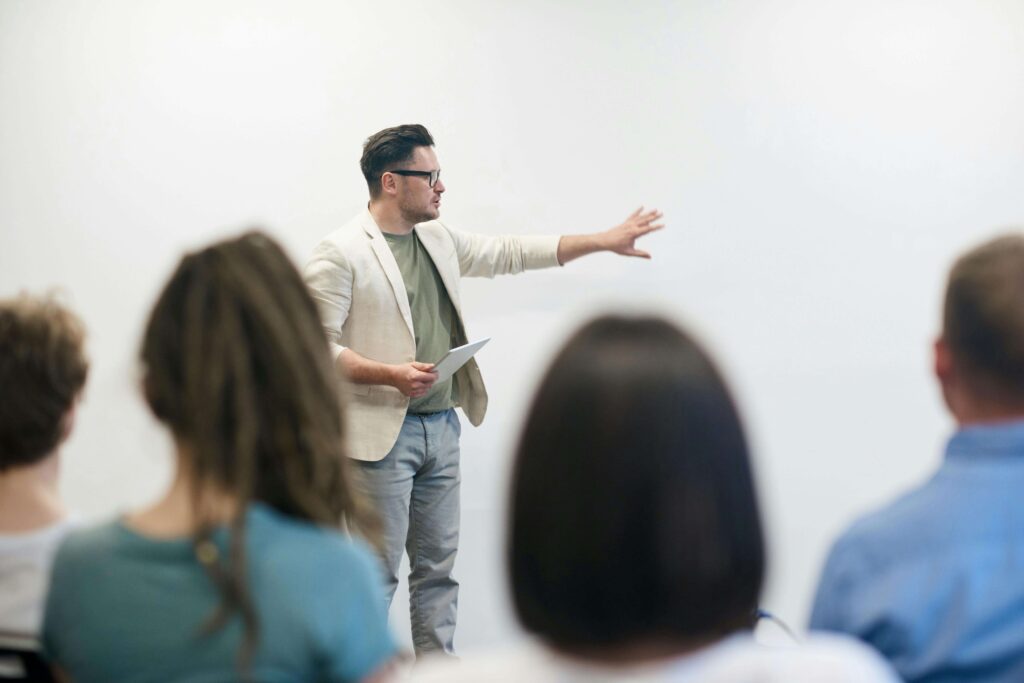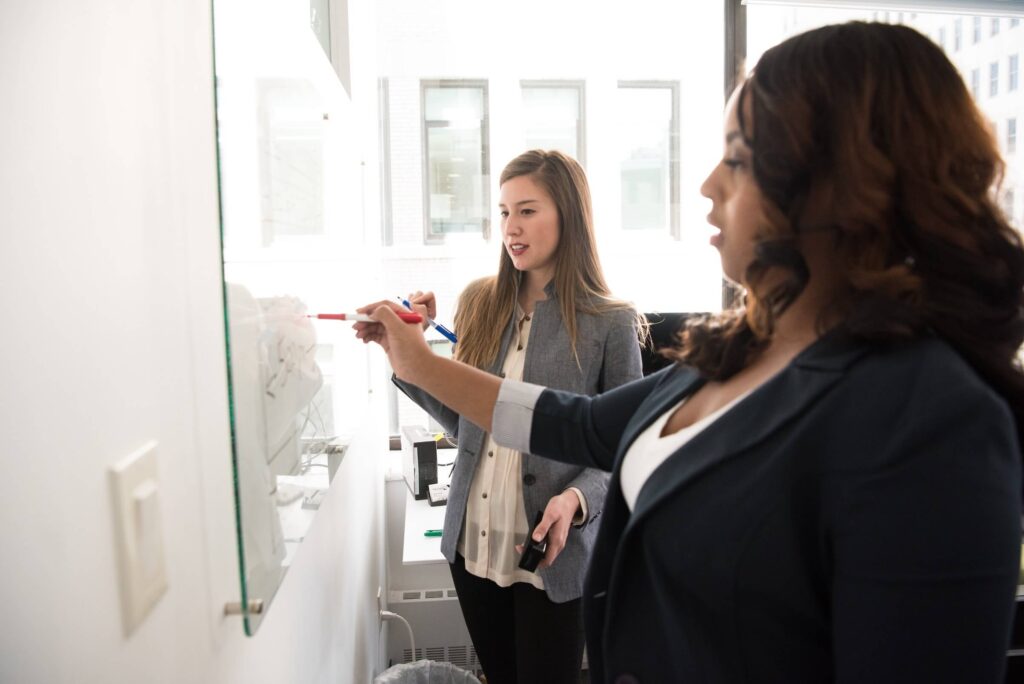Overview
Teaching something you already know to someone else is one of the best ways humans continue to learn and improve. When Marko saw the impact it had when he shared his knowledge of Java by teaching classes and unlocked new opportunities for underprivileged minorities, he saw the power of knowledge sharing that can be applied in the tech industry.
In Marko’s interview with Rob Zuber at CircleCI, he shared how his learning led to what PlusPlus is today, and how he continues to provide opportunities for peer-to-peer learning and continuous learning in innovative companies.
Knowledge creates opportunities
When the dot com bubble crashed back in 2002, Marko’s startup also fell. Since coding was his passion, when there were not too many opportunities in tech, Marko jumped on a volunteering opportunity at a non-profit that helped underprivileged minorities learn new skills. He started teaching basic Java classes to kids who would have never had that learning opportunity elsewhere. Through this process, Marko first-handedly saw the impact these classes had on the students and how these classes were changing the life trajectory of the students, who would not have had the opportunities in tech otherwise. Marko then realized that he can have the same impact on people in tech, so he started teaching classes in advanced Java components for adults by simply starting a website.
He started getting calls from companies like Williams-Sonoma, and even the US Government, and eventually grew noticeably enough, they ended up being asked by Sun Microsystem to write their Java 5 content. That led to the official formation of Marakana. It’s fair to say Marko was able to get back in the tech industry fully, and by sharing his skills and knowledge, he was helping others uplevel their skills. Marko says having slightly more understanding than others on a specific topic is enough to teach, and it also becomes a learning opportunity in the teaching process. Marko and his brother, Sasa, continued to grow Marakana, and eventually went in-house at Twitter to help them build what is now known as Twitter University.
Capture and share the magic
The original challenge they were trying to solve was how fast can they teach Android to as many engineers as possible so Twitter can go mobile, but throughout the beginning phases, they saw a more prominent, overarching problem they couldn’t answer: how does Twitter work, and how do we work at Twitter? Said differently, this is localized knowledge that one can’t gain on the internet or by reading a book. It’s the magic that could only be learned through other Twitter employees, the ‘Twitter way’.
Marko and Sasa saw that opportunities for peers to engage with others everywhere, which meant learning opportunities were everywhere. So the focus had to be being able to create a stage for those opportunities. By offering platforms and empowering internal people to stand up and teach one another, Twitter University allowed Twitter to create a strong culture of learning company-wide that is still prominent to this day.
Access to real-world wisdom
Another learning for Marko was that as long as they don’t need to worry about the behind-the-scenes operation side of things, engineers typically love showing off their knowledge. With Twitter University, they saw the popularity of these teaching opportunities that 1-in-5 engineers started teaching a class. That’s close to 500 engineers teaching something on a regular basis. Imagine how fast Twitter’s overall knowledge pool is increasing.
Learnings from the biggest outages or issues Twitter had seen previously also became a popular way to learn “the Twitter way.” They are the “fun to hear” nightmare stories, with learning opportunities that have impacted the Twitter way today. So-called war stories were the perfect examples of peer knowledge that can only be shared by people who were a part of the story.
Just by offering more opportunities and platforms where engineers can raise their hands to share their knowledge and also ask questions, Twitter University started unblocking a number of challenges and solving issues before they turn into larger problems.
Tech enablement is what’s missing
Marko saw something special. Twitter University ramped up new engineers quickly, shared deep technical knowledge effortlessly, and built a resilient engineering culture. Wouldn’t all innovative companies need this to sustain their ability to scale? This inspired what is now PlusPlus.
Starting with Salesforce, PlusPlus started helping unlock internal knowledge sharing by providing the platform for teaching opportunities. Rather than the typical “manager training,” engineering teams need a democratized way of teaching and learning, where anyone can teach something easily. It was bottom-up since engineers know best what challenges they have on a day-to-day basis. PlusPlus removed all the friction between engineers discovering timely workshops while giving internal subject-matter-experts a podium to share ideas they cared about most.
More so than ever, the bulk of how high-performing teams think—and how they innovate—is constantly evolving. At PlusPlus, we have partnered with tech leaders at innovative organizations, ranging from 50 to over 20K employees, and have figured out what works. The tangible results we’ve seen so far: faster onboarding, continuous team alignment, and meaningful engagement with top talent. Today, we continue to build what high-performing teams need, a tech enablement platform that unlocks shared understanding. It’s a crucial, yet missing link that’s needed to be effective, stay in sync, and grow as a team.







